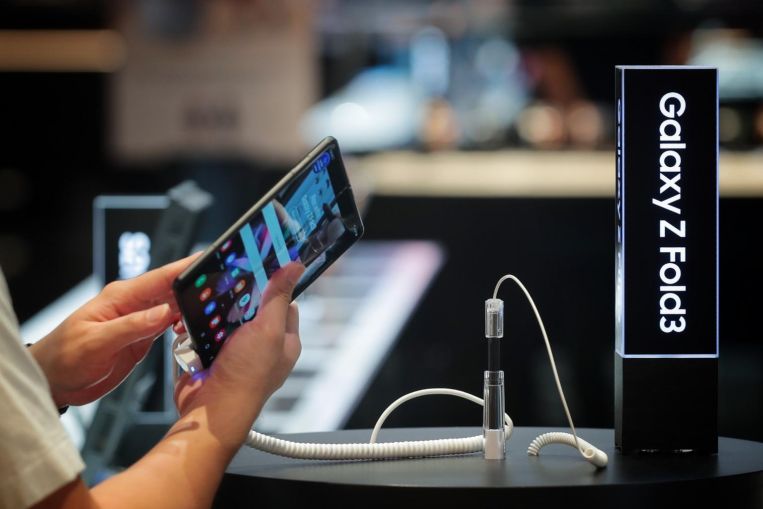SINGAPORE – Fewer smartphones were shipped worldwide in the third quarter of this year, compared with the same period last year, amid an ongoing global chip shortage.
Vendors shipped 325.5 million units, a 6 per cent drop from 348 million in the third quarter of last year, according to market research firm Canalys last Friday (Oct 29).
This comes as the global semiconductor shortage continues, due to various factors, such as increased demand for consumer electronics and the Covid-19 pandemic causing factories to shutter.
It has hampered the production of various items, including televisions, computers and cars, and is expected to last through next year.
According to Canalys’ findings, Samsung was the leading vendor in the third quarter of this year, shipping 69.4 million units – which is about 21 per cent share of the total shipments made during the period.
Apple was in second place, with 49.2 million units shipped, while Chinese smartphone giant Xiaomi came in third with 44 million units.
Two other Chinese smartphone makers, Oppo and Vivo, took fourth and fifth place, respectively. Oppo shipped 36.7 million units, while Vivo had 34.2 million units shipped.
The chip shortage, along with supply chain disruptions, cost Apple US$6 billion (S$8 billion) in sales during the company’s fiscal fourth quarter, reported Reuters last week.
The company’s chief executive Tim Cook also said last week that the component crunch is now affecting “most of our products”.
According to a report by Bloomberg earlier this month, the company is likely to cut production of its iPhone 13 due to the supply crunch.
Apple and Samsung had earlier warned of component shortages that could affect shipments.
But phonemakers have been stocking up on chips, so the phone market could have been partially shielded from the component supply crunch, reported CNBC in July.
The chip shortage is also expected to affect the prices and availability of mobile phones and computers next year.
Financial news outlet Nikkei Asia had reported in September that major chipmaker Taiwan Semiconductor Manufacturing Co – whose clients include brands such as Apple and Qualcomm – was reportedly planning a chip price hike.
This could cause prices of electronics to rise next year.














































